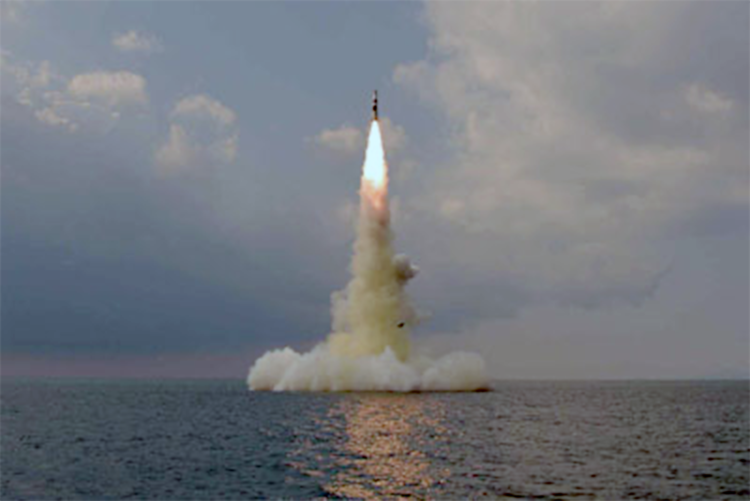
Sinpo-class Submarine Damaged During October 19 Test Launch
Key Findings
- North Korea’s SINPO-class experimental ballistic missile submarine suffered a malfunction likely resulting in damage during the October 19, 2021, SLBM test launch.
- The submarine underwent repair work within the secure boat basin to its sail, which contains the submarine’s sole missile launch tube, during October-November.
- During early December, it moved to the graving dock at the Sinpo Shipyard for further repairs and maintenance—including work around its engine compartment.
- The submarine returned to the secure boat basin during mid-December and appears operational.
- The submarine plays a critical role in the under-way development of SLBMs, ballistic missile submarine technology, and operational procedures. It is also an indispensable tool for hands-on training to new submariners.
Examination of approximately 76 Maxar, Planet, and Airbus satellite images between October 3, 2021, and December 29, 2021, provides insight into recent activity and status of the 8.24 Yongung from its preparations for the October 19 test launch until present. While it remains to be publicly confirmed, this imagery and informed sources indicate that North Korea’s SINPO-class experimental ballistic missile submarine (SSBA)—recently named the 8.24 Yongung (August 24th Hero)—suffered a malfunction likely resulting in damage during the October 19, 2021 test launch of a “new type” submarine-launched ballistic missile (SLBM).1 This same satellite imagery also indicates that there was noteworthy activity centered on the stern of the boat during December.
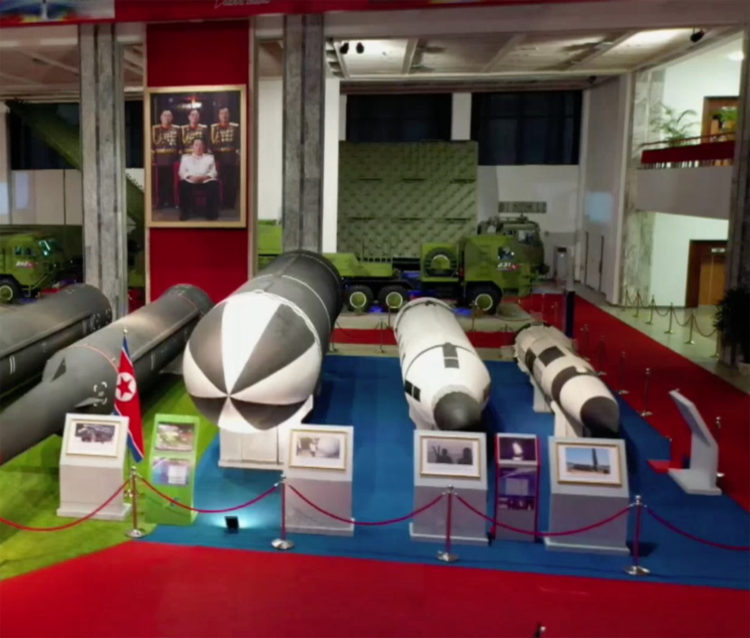
Between October and December of 2021, the 8.24 Yongung prepared for and conducted an SLBM test of a “new type” SLBM, underwent apparent repair work on its sail, which contains the submarine’s sole missile launch tube, and was subsequently moved into and out of the graving dock at the Sinpo Shipyard for the first time since being launched in 2014.2
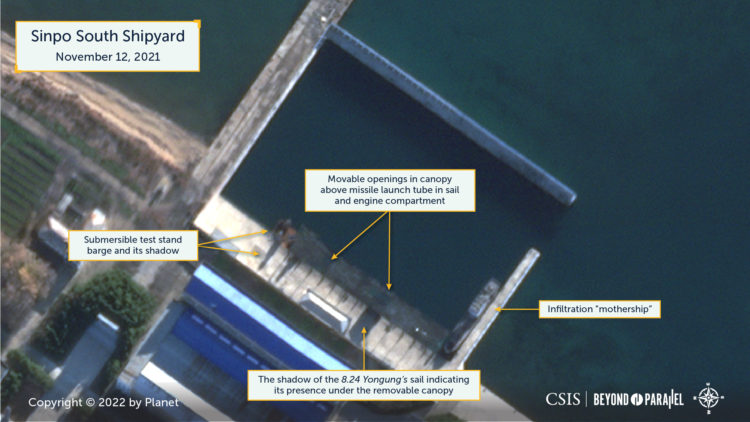
During these three months, a wheel-mounted telescoping crane was observed working directly alongside or with its boom extended directly over the sail of the 8.24 Yongung on 18 separate occasions. The first of these occasions was on October 14 and the last on November 29. The crane’s presence during October 14-15 was clearly associated with the missile loading and pre-test checkout preparations for the October 19 SLBM test launch. Such activity has been observed prior to other SLBM test launches and an image published by North Korea’s KCTV during 2016 shows the telescoping crane loading a Pukguksong-1 (KN-11) SLBM into the submarine in the background.
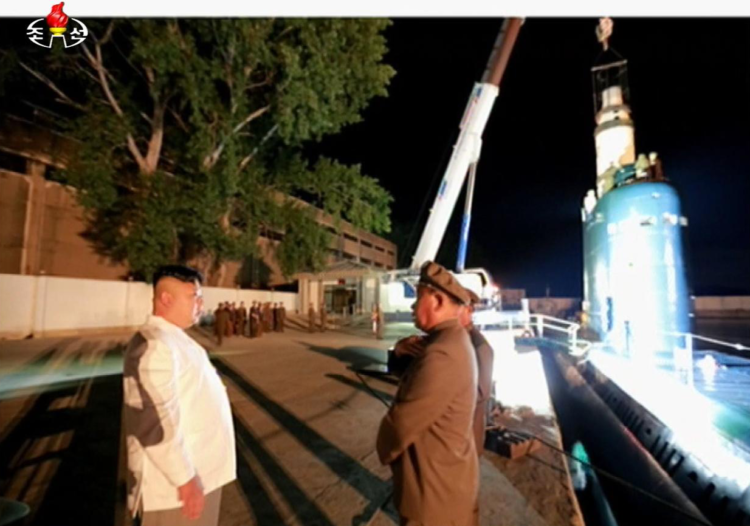
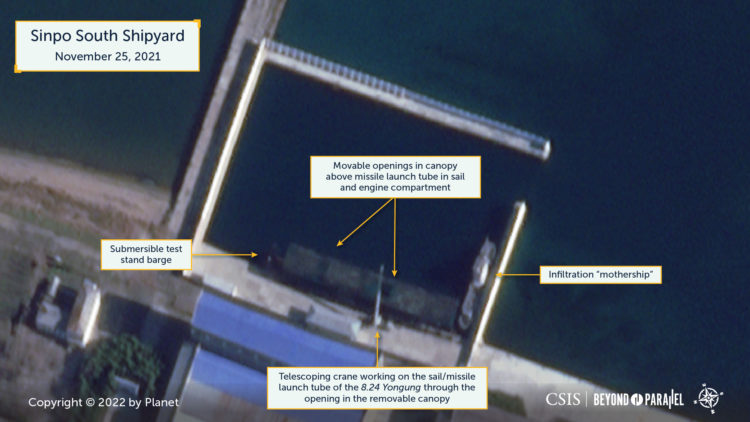
The crane reappeared afterward on October 21 and 25, which was less typical of previously observed post-test activities. What isn’t typical, however, is that the crane again returned to working alongside or above the submarine’s sail during November 4-6. Then, most unusually, it was again present from November 18 through 29 before departing. One week later, on about December 6, the 8.24 Yongung was moved from its berth in the secure boat basin to the graving dock at the Sinpo Shipyard 3.7 kilometers (2 nautical miles) to the northeast.3 The submarine remained here until about December 15 when it returned to its normal berth within the secure boat basin.
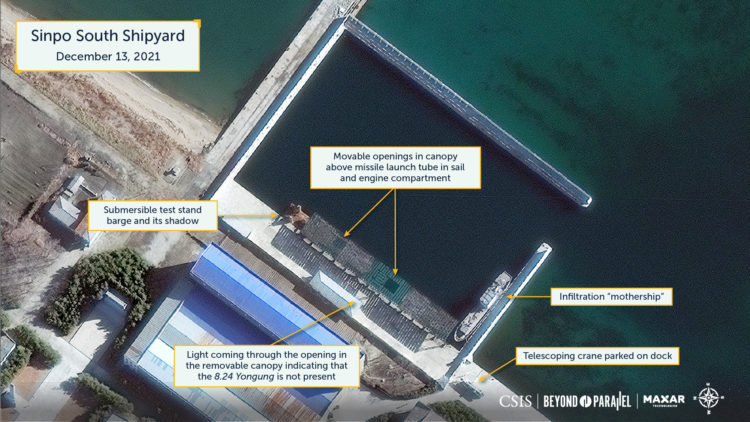
Only one clear publicly available high-resolution satellite image, acquired by Maxar Technologies on December 13, shows the submarine located in the graving dock. In this image, the top of the submarine’s sail (with missile launch tube) is obscured—either due to resolution or by a tarp—preventing any detailed examination of any potential damage or repairs to the sail or launch tube. Significant activity, however, is observed on and around the stern of the submarine above the area of the engine room. This activity suggests either a repair of the propulsion system or the upper hull in this area. This work was apparently complete, and the submarine moved back to the secure boat basin on about November 16.
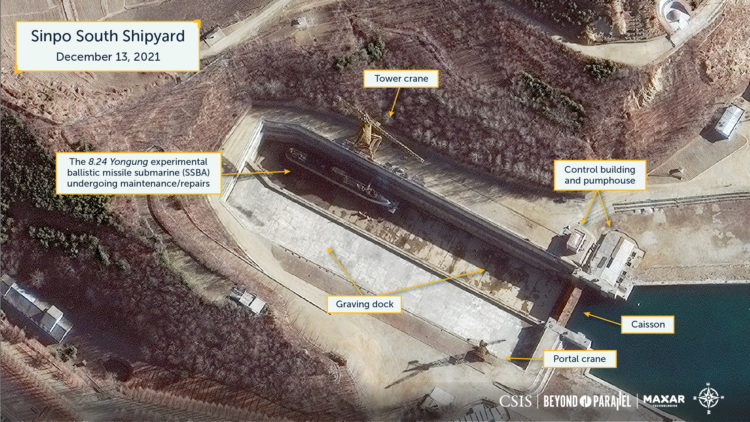
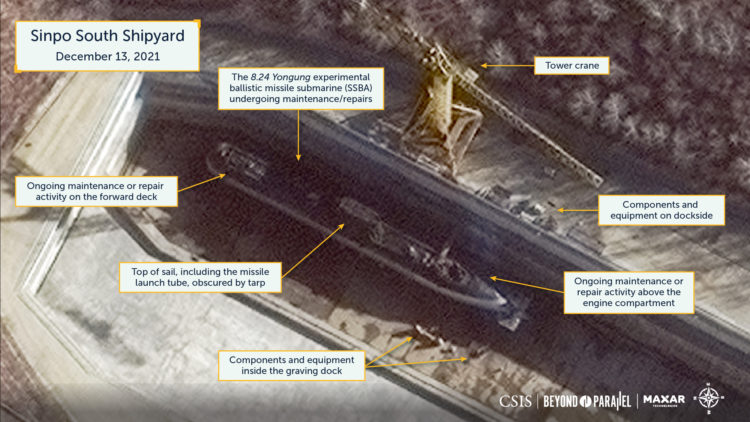
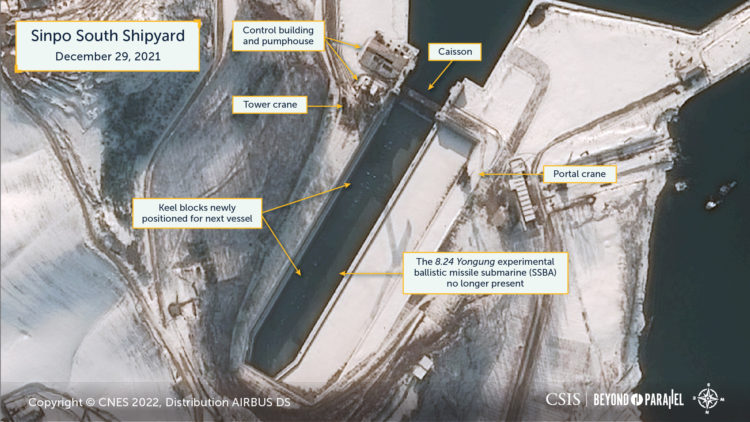
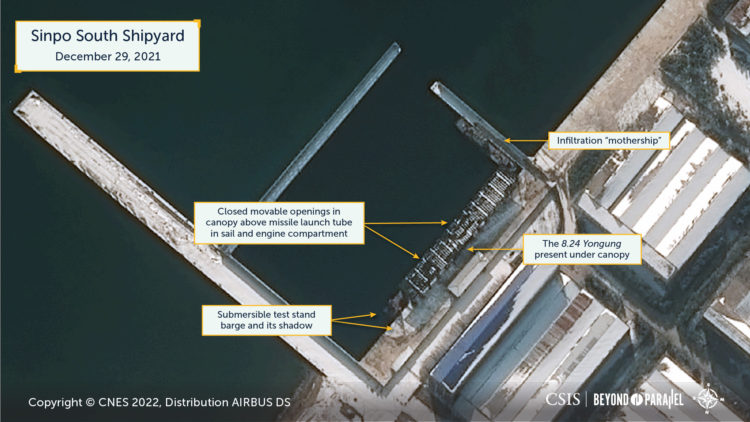
Assessment
Taken as a whole, this level of activity is unprecedented, never having been observed in publicly available satellite imagery. The observed activity appears to support informed sources’ reports that a malfunction, likely resulting in damage, occurred to the submarine’s launch tube or conning tower during the October 19 SLBM test. This assessment may also be supported by an image released by North Korea purportedly showing the 8.24 Yongung surfacing immediately after the October 19 test launch with its launch tube hatch in the open position—not common practice during submarine ballistic missile test launches.
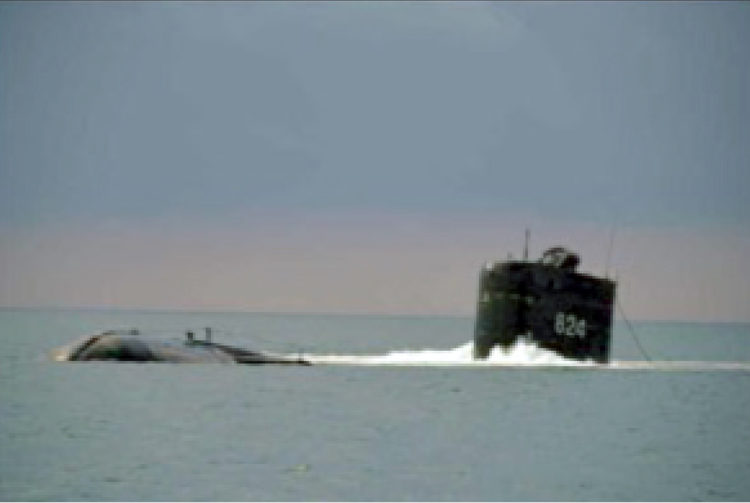
The close timing among the test launch, repairs in the secure boat basin, and activity in the graving dock suggest a direct correlation. However, the precise nature of this has yet to be determined.
The continued operation and maintenance of the 8.24 Yongung provides ample evidence of the critical role it plays in the under-way development of SLBMs, ballistic missile submarine technology, and operational procedures. It also provides an indispensable tool for hands-on training to new submariners in operating a ballistic missile submarine. The latter is of the utmost importance to the commissioning and manning of future true ballistic missile submarines.
References
- Interview data acquired by Joseph S. Bermudez Jr. Prior to the October 19 test launch the 8.24 Yongung (August 24th Hero) was publicly unnamed and carried no pennant number. It was most often simply identified as the SINPO-class experimental ballistic missile submarine (SSBA). From the images of the test released by North Korea this “new type” SLBM bears a strong resemblance to the new, smaller, SLBM displayed at the October 12, 2021 Defense Development Exhibition, Self-Defense 2021. “Academy of Defence Science Succeeds in Test-Launch of New Type SLBM,” Rodong Sinmun. October 20, 2021. ↩
- The available imagery does not cover every day during the period under study, not all the imagery covers both the secure boat basin and the graving dock, and clouds frequently obscured the secure boat basin and/or graving dock for dates when imagery was available. ↩
- It is unknown whether the submarine moved to and from the graving dock on its own power or was assisted by a yard tug. ↩

